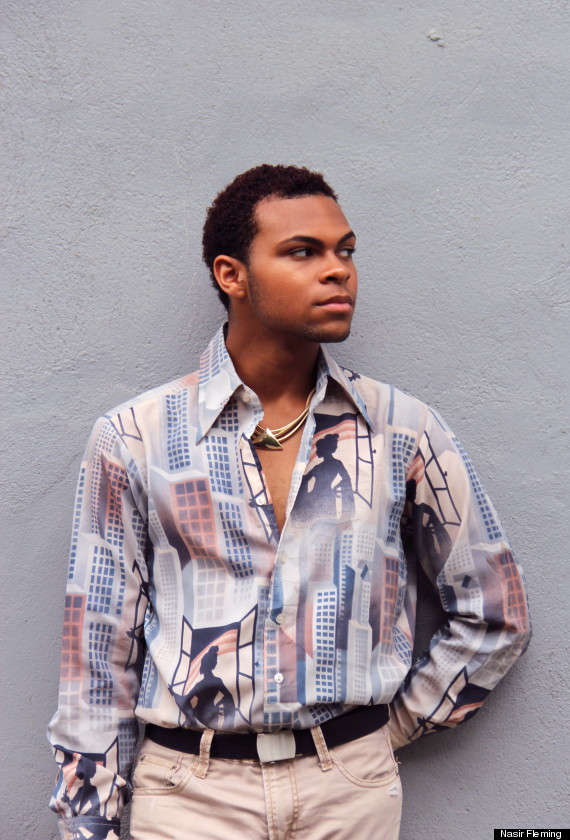
Many American popular culture icons have a standard look: skinny, yet perfectly curvy, fair skin and light eyes. Marilyn Monroe, Jean Harlow, Marlon Brando and Leonardo DiCaprio are all undeniably stunning and stylish in their own way, but for the longest time, their style of beauty is all that was considered to be beautiful by many in the United States and in the world.
As a society, our perception of beauty can be traced back to the Europeans' "discovery" of United States. As many know, the Dutch and English, as well as other European countries, participated in the Atlantic Slave Trade and they brought slaves to the Americas. Once they arrived here with their indentured servants and African slaves, they created an empire. All of the Africans, Native Americans and poor indentured servants had to try to assimilate into Euro-culture in order to fit in and to have the possibility of being treated with basic respect.
The perception that many have of beauty, white skin, wealth, thin bodies, long hair, and among others can all be explained through history. Since the Europeans were the conquerors of the Americas, and damned-near the whole world, of course their aesthetic is going to be valued and yearned for by many. The Europeans controlled their colonies and the media in their colonies; therefore, their aesthetic was valued and many minorities wanted to look like them.
Fortunately, today many are challenging the Eurocentric and gender-strict values of beauty, and all types of people are starting to be considered as beautiful. The media is slowly changing and now many unconventional beauties and ways of life are being recognized: non-skinny body shapes, curly and dark hair, bronze/darker skin tones, assertive women, non-aggressive men and many others. We are making improvement, but there is still room to evolve.
For the longest time, I had a poor self-image. In elementary school, I generally saw chiseled six-packs, flowing hair and lightly toasted skin on television. Of course there was a bit of diversity when I watched my kid-shows like That's So Raven or High School Musical, but when I looked at models, talk show hosts, and news reporters the majority of them looked the complete opposite of me. I grew up believing that there was only one type of beauty, the kind that I saw on all of the important news stations and big-named movies. Many will say, "Well, you had Oprah, didn't you?" That's true, but unfortunately, one person does not make up for a whole population. I always aspired to be like Brad Pitt or Matt Damon, in terms of looks and masculinity.
It was not until high school, when I began to fully accept myself in terms of my race, sexuality and intellect. It became more popular to see celebrities of color on the screen. I started to see voluminous, curly afros along with eccentric styles of clothing. I was exposed to extremely successful black people, eloquent gay people, and strong women, all traits which are typically not promoted by the media. All of these experiences began to change my perception of beauty. Yes, beauty is a look, but beauty is also a lifestyle. So, being exposed to people who broke societal norms of beauty made me feel comfortable regarding myself as beautiful. I will forever love the aesthetic of Heidi Klum, Taylor Swift and Ryan Gosling, but I do not let myself have a narrow perception of what is desirable or attractive.
I find beauty in all sorts of people. The problem is that the media promotes beauty just as physical characteristics, but beauty is internal also. For me, everyone has beautiful traits, but I especially regard someone as beautiful if he or she exudes confidence, is motivated, is inspiring, is daring and has a glowing personality. I find personality more appealing than looks, and many times, personality enhances someone's looks.
For me to begin regarding myself as beautiful, I had to understand why I did not consider myself beautiful. Which I soon realized is because of the media and me not matching the images that it promoted. If you ever question your beauty or self-worth, I challenge you to ask yourself why you feel this way. The only way to solve the problem is to identify and understand the problem. Maybe because your parents told you to lose weight, you have been bullied, or media has an effect on you. Sadly, many of us are never content with ourselves. We always want to be skinnier or curvier, taller or shorter, lighter or darker.
We need to realize that we choose our beauty. We are the ones who create realities for ourselves, and we need to move past this self-hate. Every single person in the world has beautiful qualities about himself or herself. It is best to step outside of the artificial stereotypical beauty that history has created for us, and to start deciding what truly appeals to us. It is absolutely acceptable to love Hollywood glamour, I do! But it becomes dangerous when we limit ourselves on a set definition of what beauty is, because it can lead to subconscious prejudices and self-hate. On the contrary, excessive self-love can be problematic too. It is best to have a decent balance of self-love and humility.
Overall, beauty is subjective. We have the power to extend and change our minds about what is aesthetically appealing. Whether you are white, brown or black, have kinky hair or straight hair, have straight teeth or braces, are outgoing or reserved, you are unique and you have the power to decide if you are beautiful. Do not let a subjective term destroy your self-worth.

Photo credit: Natalia Ortonowska.
